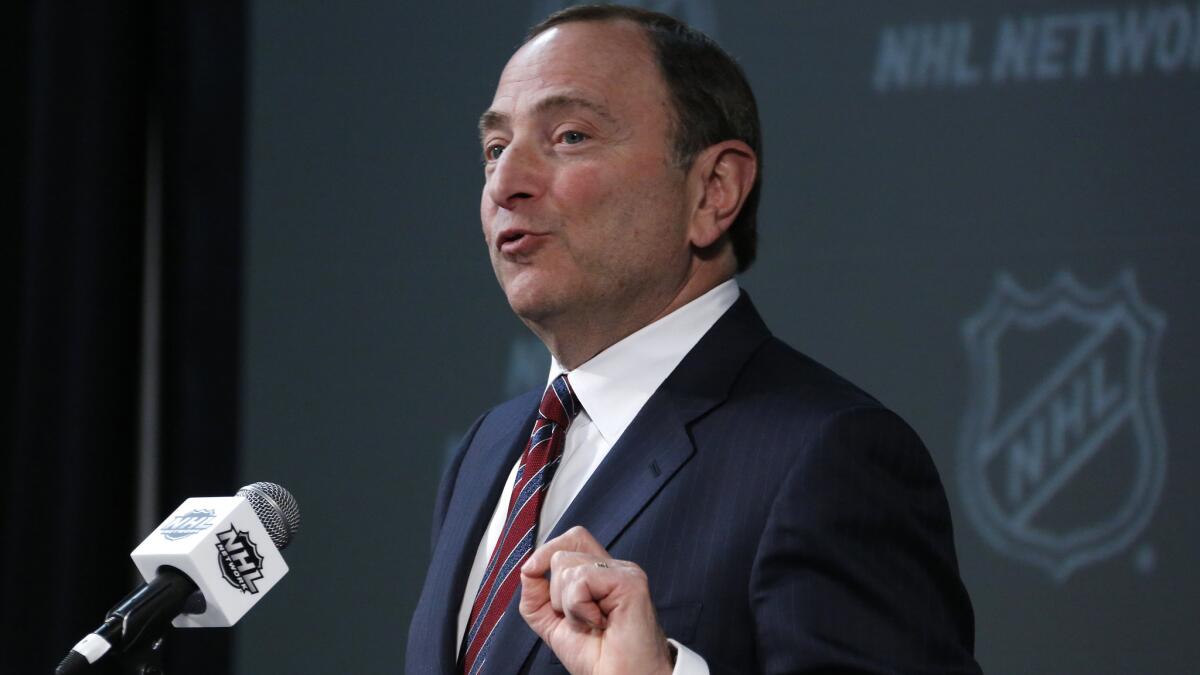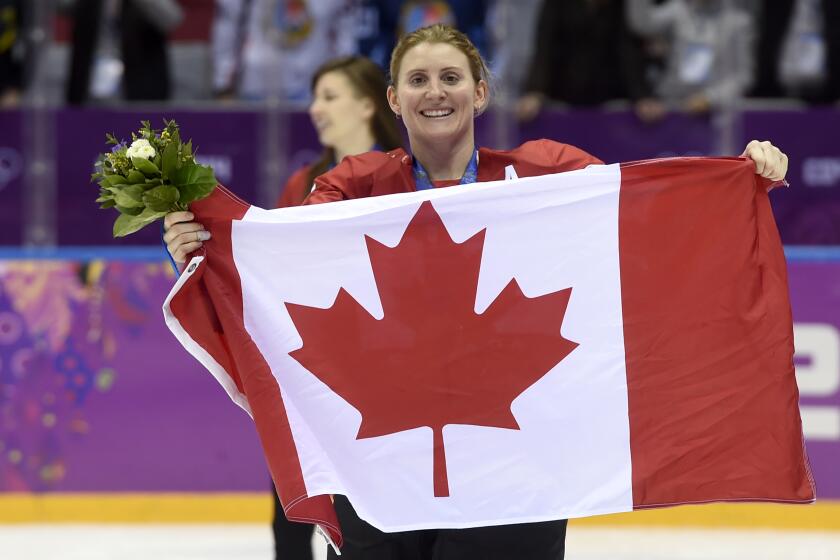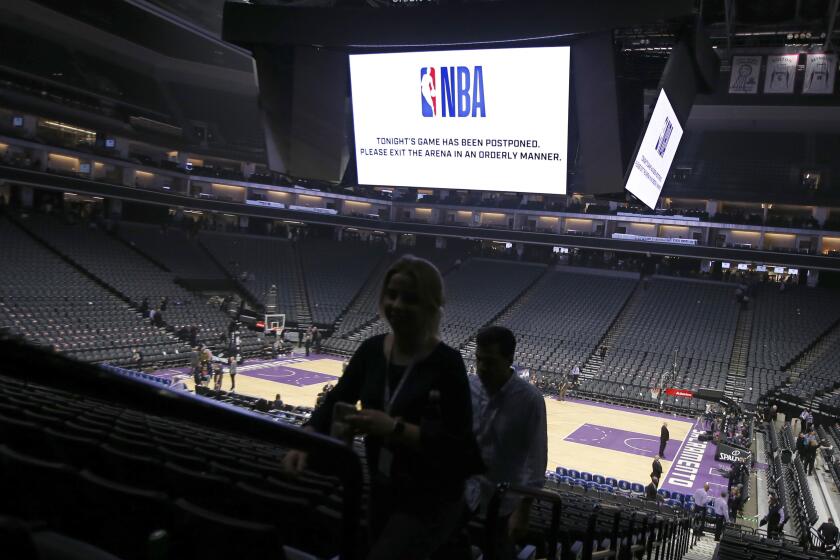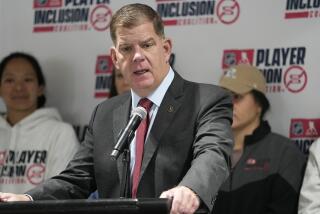Gary Bettman says the NHL is leaning against games in non-league cities

- Share via
The NHL is leaning against staging regular-season or playoff games in non-league arenas when it gets clearance to resume operations following its COVID-19-related pause and its options now include bringing teams to compete in two or four NHL cities. Those sites would be chosen not necessarily on a division-related basis but as “anywhere that isn’t a hot spot and has what we need both in terms of the arena and having practice facilities,” Commissioner Gary Bettman said Wednesday.
Speaking to Sportsnet’s Ron MacLean in a video posted on Facebook, Bettman reiterated he remains hopeful the season can be completed, perhaps by going late into the summer and with a modified playoff format, and that next season could start late but would be played in its entirety. Asked the status of the NHL’s back-to-play plan, Bettman replied, “Which one of the plans?
“We’re modeling. We’re trying to see what our options will be under whatever scenario unfolds. ... The decision ultimately will be made by medical people and people who run governments at all different levels, so we’re not going to try to do anything that flies in the face of what we’re being told is appropriate.”
Those scenarios include possibly playing without fans in the building or using precautions to mitigate the spread of the virus. “I think there will be some social distancing for a while. I think there will be masks. There will be Purell,” Bettman said. “There will be lots of things but that’s something that ultimately the medical people and the government leaders will be the best able to tell us.”
Hayley Wickenheiser, the Hockey Hall of Fame player turned medical student, has organized drives to provide equipment for medical personnel.
He said it’s unlikely games will take place in neutral arenas in Grand Forks, N.D., or Manchester, N.H., a possibility that was floated the past few weeks. “We can’t play in a small college rink in the middle of a smaller community because if we’re going to be centralized we need the back-of-the-house [amenities] that NHL arenas provide, whether it’s multiple locker rooms, whether it’s the technology, the procedures, the boards and glass, the video replay, the broadcasting facilities,” Bettman said.
He also said the league, which paused play on March 12 after playing about 85% of its schedule, has no revenues coming in now. “And that poses an issue not just in terms of how our system works with players but the tens of thousands of people that work for clubs in all sports and how they’re impacted by the fact that sports has no revenue coming in,” he said.
Most of the NHL’s national TV revenues are attributable to the Stanley Cup playoffs, he said, but is paid during the season. “That money is already in,” he said, “but we’ll owe it to [broadcast rights holders] if nothing else, in credits against next season.”
Bettman acknowledged that he and the general managers of the 31 clubs discussed holding the annual draft before the season ends but called that idea “a trial balloon” designed to spark discussion. It’s a complicated notion because some teams hold draft picks that were made on a conditional basis and will depend on the performance of the traded player or his new team. Until the season is finished, those conditions couldn’t be met.
Those are only a few of the potential hurdles to implementing that idea. Bettman, who said he maintains frequent contact with the league’s medical advisors, an infectious disease consultant and the NHL Players’ Assn., also noted it’s possible the league could reconfigure the draft lottery and how those slots are determined. “If whatever we do is fair and has integrity, it will work,” he said.
Before NBA play can resume, a number of medical protocols should be in place to protect players, staff and arena workers. Medical experts say that is a problem.
“We don’t live in a world of perfect anymore. We’re going to have to make adjustments. Ideally from our standpoint, and it would resolve a lot of issues, would be if we could complete the regular season, even if it’s on a centralized basis, and then go into the playoffs the way we normally play them. That would be ideal, but again, that’s one of the numerous models that we’re looking at and if we can’t do ideal, if we can’t do perfect, we’re going to have to figure out what’s next to perfect. ...
“With all the reporting — and I love the people that cover our games because they’re passionate about it and they’re always thinking about it — don’t take anything that’s written as gospel because we are in the stage of talking about and thinking about everything, and no decisions have been made. If we know what the options are, if we know what the issues are and how to begin to address them, then when the time is right we can try to make the best decisions possible.”
More to Read
Go beyond the scoreboard
Get the latest on L.A.'s teams in the daily Sports Report newsletter.
You may occasionally receive promotional content from the Los Angeles Times.









